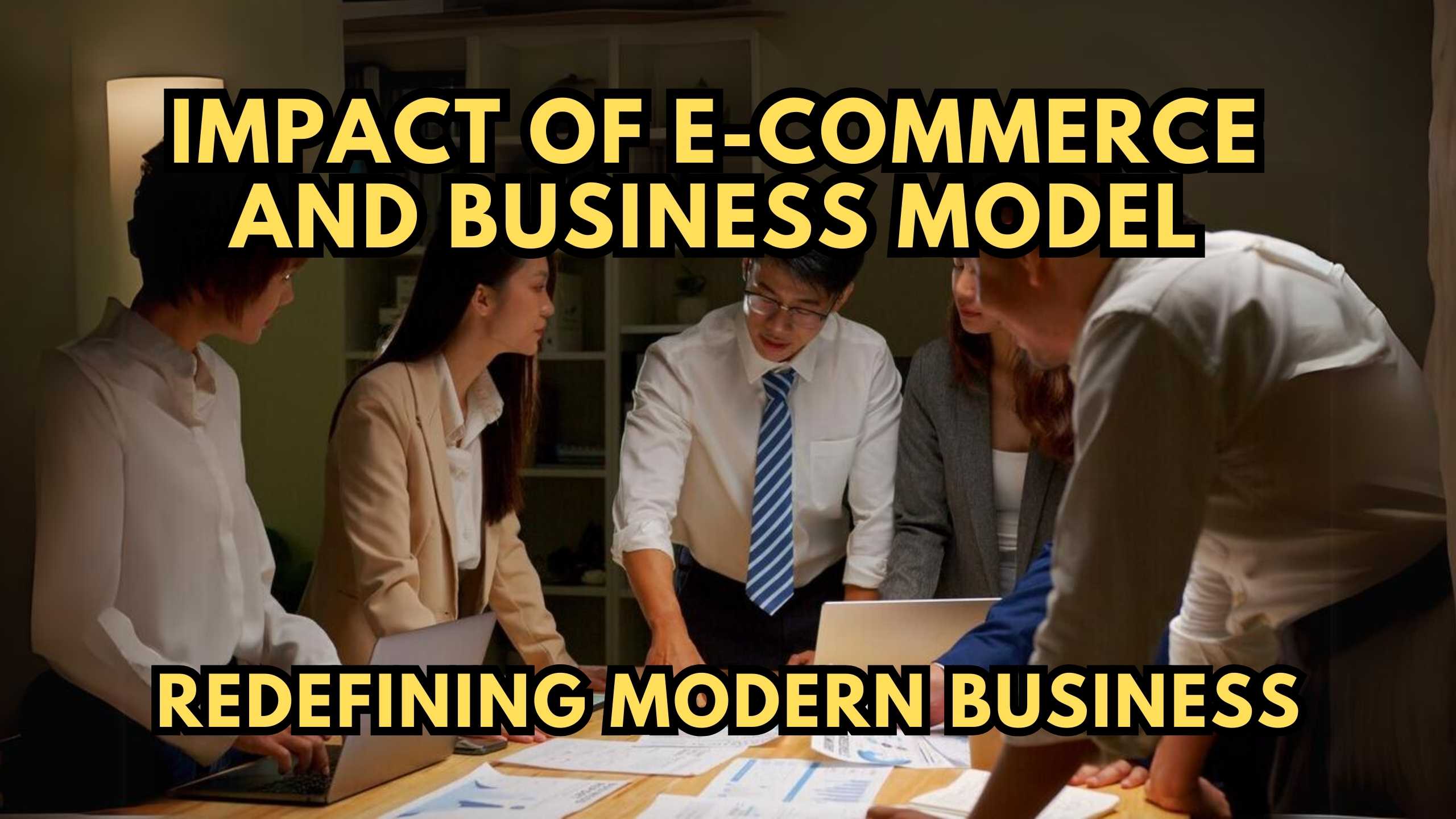Impact of E-commerce and Business Model: Redefining Modern Business


Impact of E-commerce and Business Model: Redefining Modern Business
In the dynamic landscape of modern business, the fusion of e-commerce and innovative business models has brought about a paradigm shift, redefining how companies operate and interact with their customers. In this blog, we will explore the profound impact of e-commerce and evolving business models, analyzing how these elements reshape the business ecosystem.
1. E-commerce’s Disruptive Force
E-commerce has emerged as a disruptive force, challenging traditional brick-and-mortar models. Platforms like Shopify provide businesses with scalable and flexible online solutions, enabling seamless e-commerce operations. This shift allows businesses to reach a global audience, streamline transactions, and adapt to changing consumer preferences, fundamentally altering the way commerce is conducted.
2. Subscription-Based Business Models
The rise of subscription-based business models, exemplified by companies like Netflix, has transformed the way consumers access and consume products and services. This model, facilitated by subscription management tools such as Recurly, offers businesses a predictable revenue stream and allows for personalized offerings. By aligning with customer needs and preferences, subscription models enhance customer loyalty and satisfaction.
3. Cloud Computing Empowering Businesses
Cloud computing, represented by platforms like Amazon Web Services (AWS), has become integral to modern business operations. The scalability and flexibility offered by cloud services enhance e-commerce platforms’ capabilities, providing efficient storage, processing power, and data analytics. This not only optimizes operations but also allows businesses to innovate rapidly, staying ahead in the competitive landscape.
4. Analytics-Driven Decision Making
E-commerce and evolving business models leverage data analytics tools such as Google Analytics to glean insights into customer behavior. Understanding consumer preferences, purchasing patterns, and demographics enables businesses to make informed decisions. By harnessing data, companies can tailor their strategies, improve customer experiences, and stay agile in an ever-changing market.
5. Enhanced Customer Engagement Through CRM
Customer Relationship Management (CRM) tools like HubSpot CRM play a pivotal role in modern business strategies. By centralizing customer data, businesses can build personalized relationships and tailor their approaches. This not only fosters customer satisfaction but also enables targeted marketing efforts, contributing to long-term customer retention.
Recommended SaaS Products:
- Shopify: Transform your business with Shopify’s e-commerce platform, enabling seamless online operations and global reach.
- Netflix: Embrace the subscription model with Netflix, revolutionizing how businesses provide personalized offerings and ensure a predictable revenue stream.
- Recurly: Streamline subscription management with Recurly, enhancing customer loyalty and satisfaction through efficient revenue stream management.
- Amazon Web Services (AWS): Empower your business with AWS’s cloud computing capabilities, optimizing operations and fostering rapid innovation.
- Google Analytics: Leverage data-driven insights with Google Analytics, shaping informed decisions and strategies for your business.
- HubSpot CRM: Enhance customer engagement and retention with HubSpot CRM, centralizing customer data for personalized approaches.
Conclusion
The impact of e-commerce and innovative business models extends far beyond transactional interactions. From disrupting traditional commerce to fostering subscription-based relationships, embracing cloud computing, leveraging analytics, and enhancing customer engagement through CRM, businesses are navigating new frontiers. This transformative landscape requires a strategic approach to stay competitive and meet the evolving needs of consumers.
Unlock Business Success with Subscribed.fyi!
Ready to navigate the complexities of the modern business landscape? Unlock free member-only deals with Subscribed.fyi and empower your business. Streamline subscription management, compare SaaS tools, and make informed decisions. Sign up today to access exclusive deals and savings totaling $100,000+ per year!
Relevant Links:








